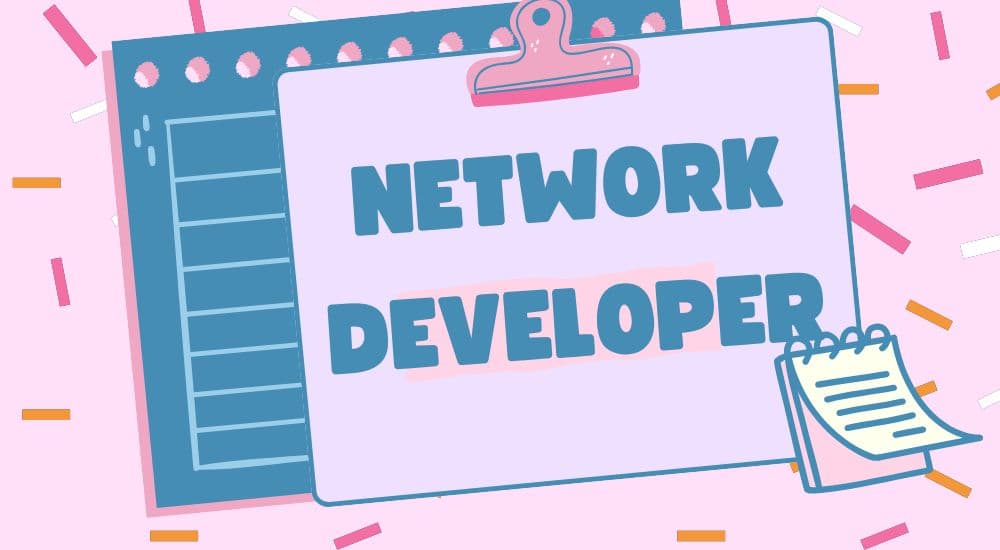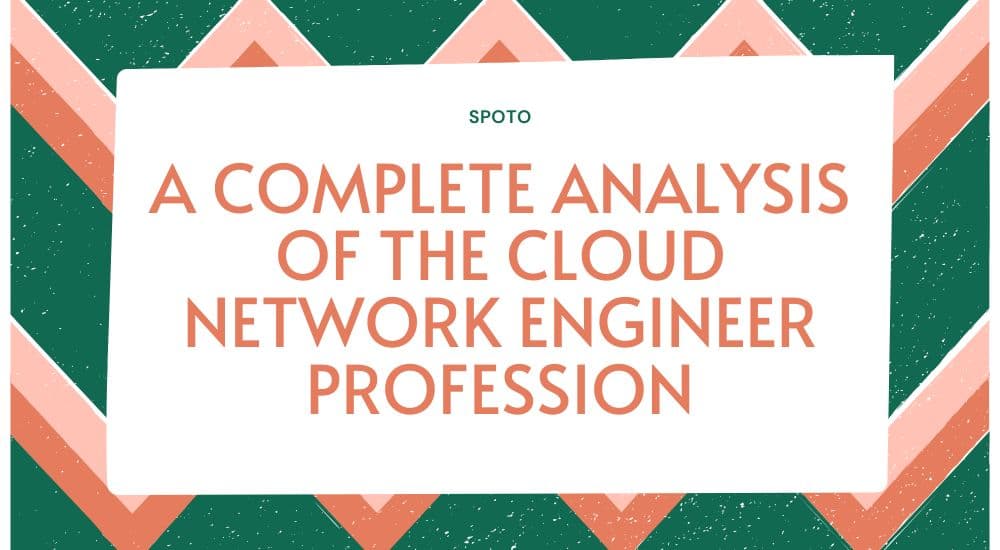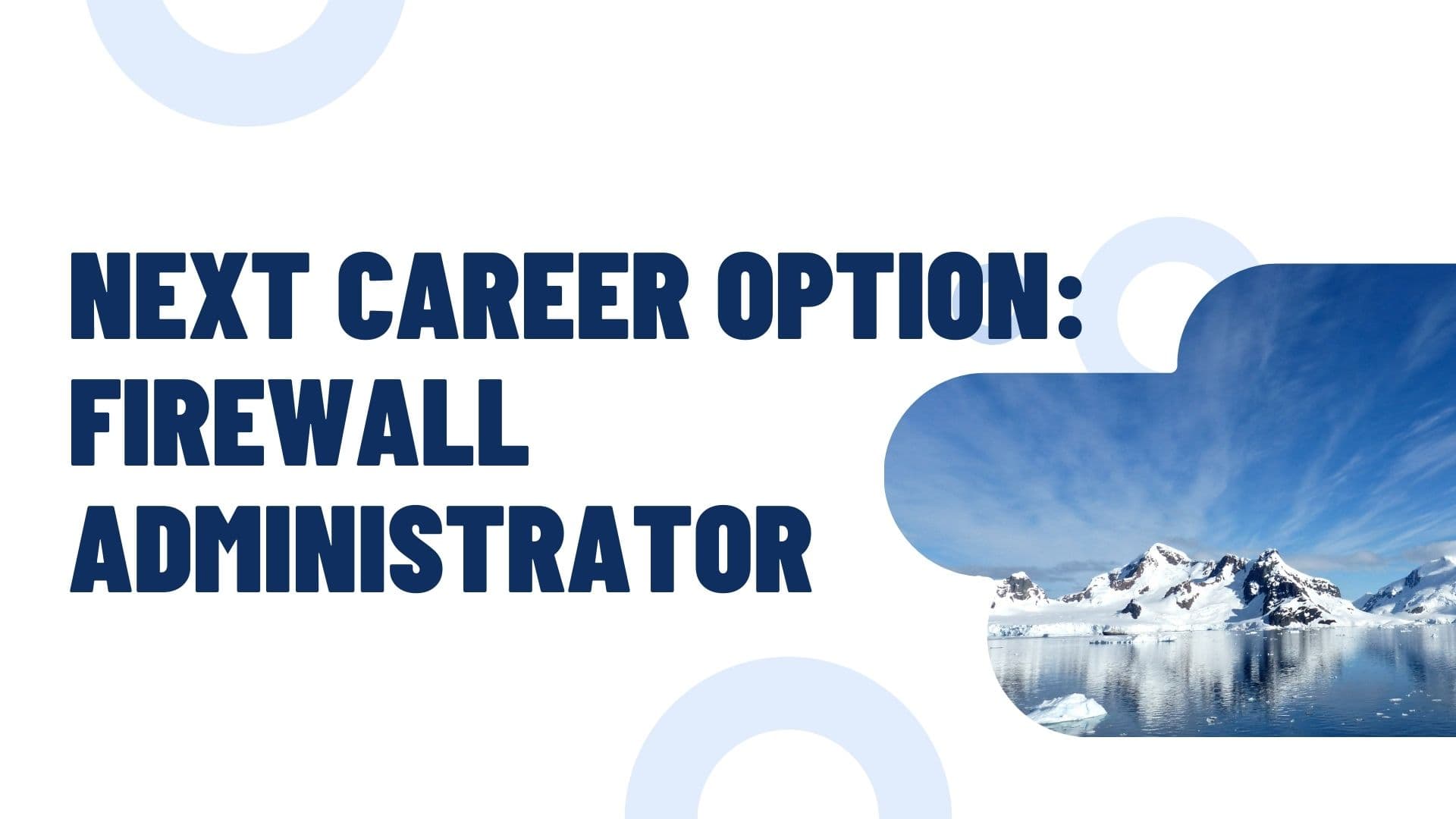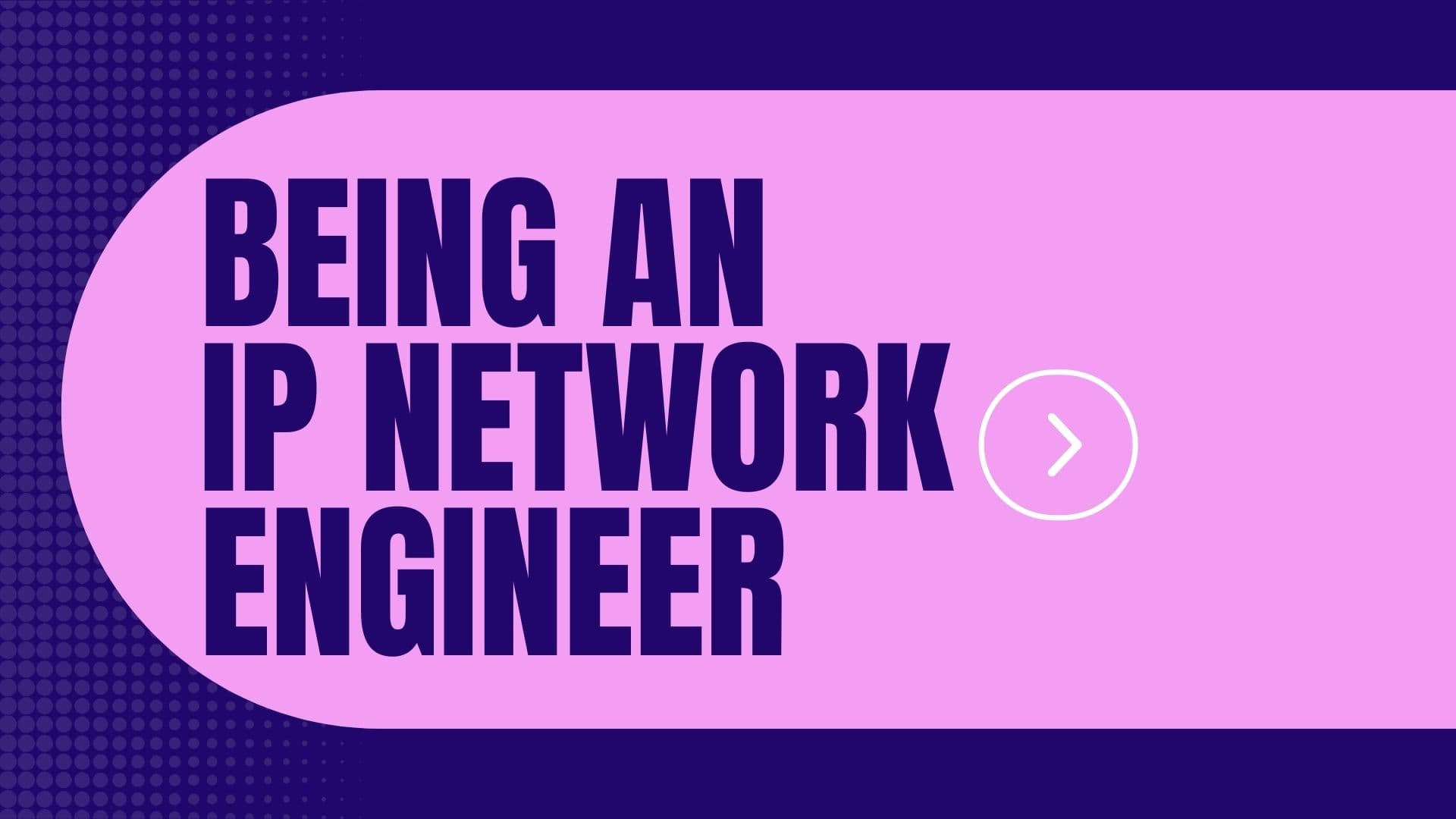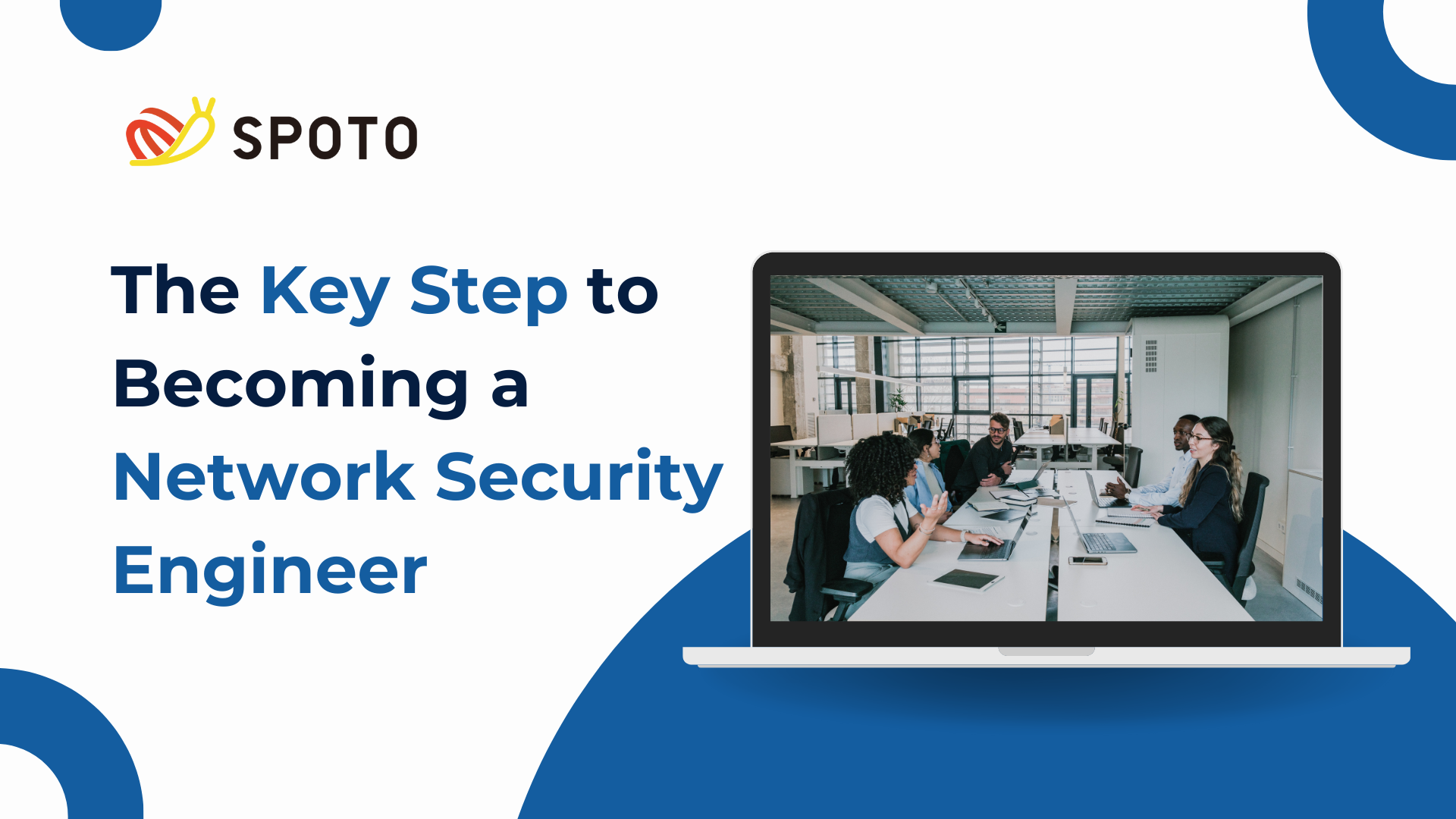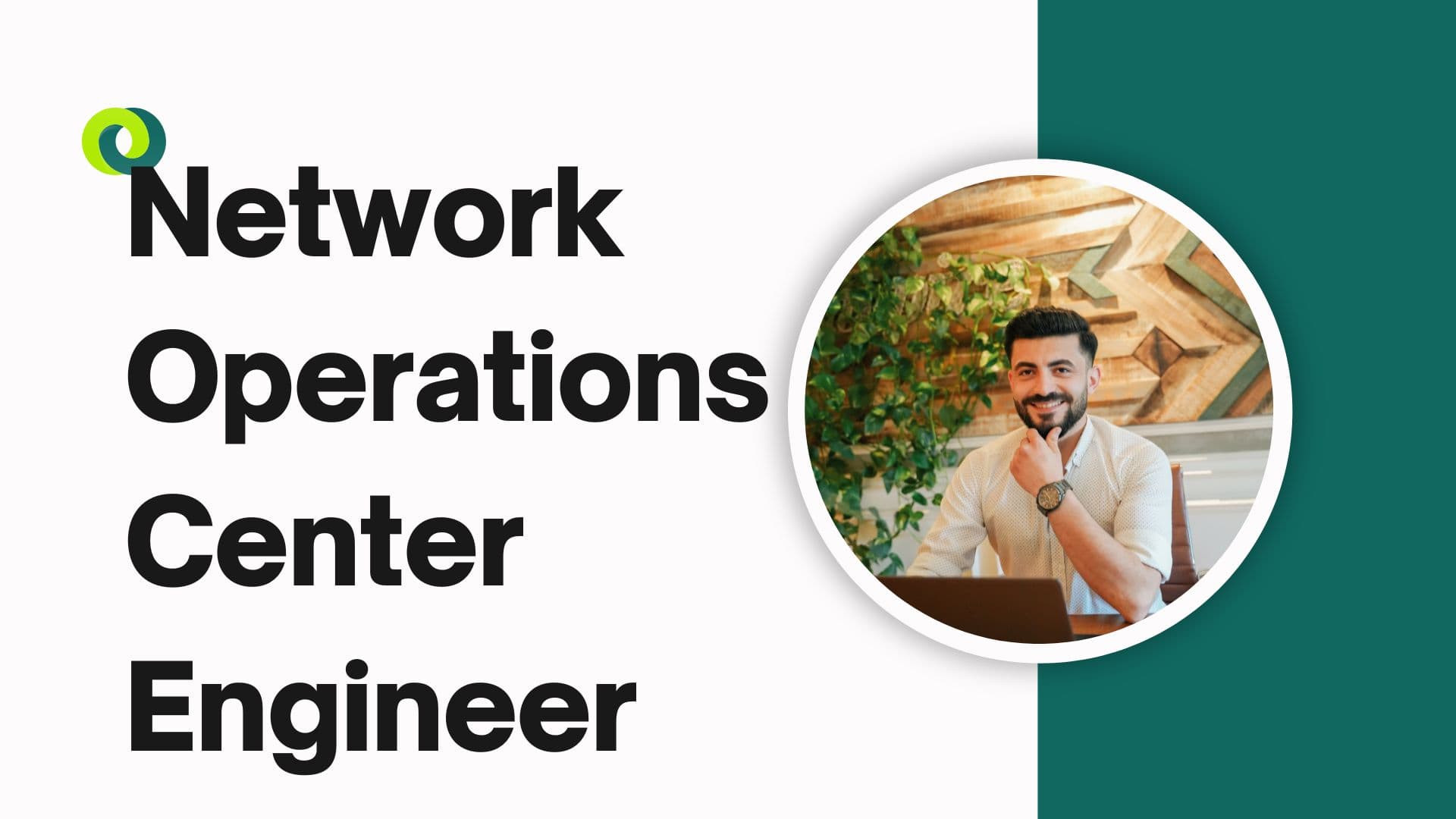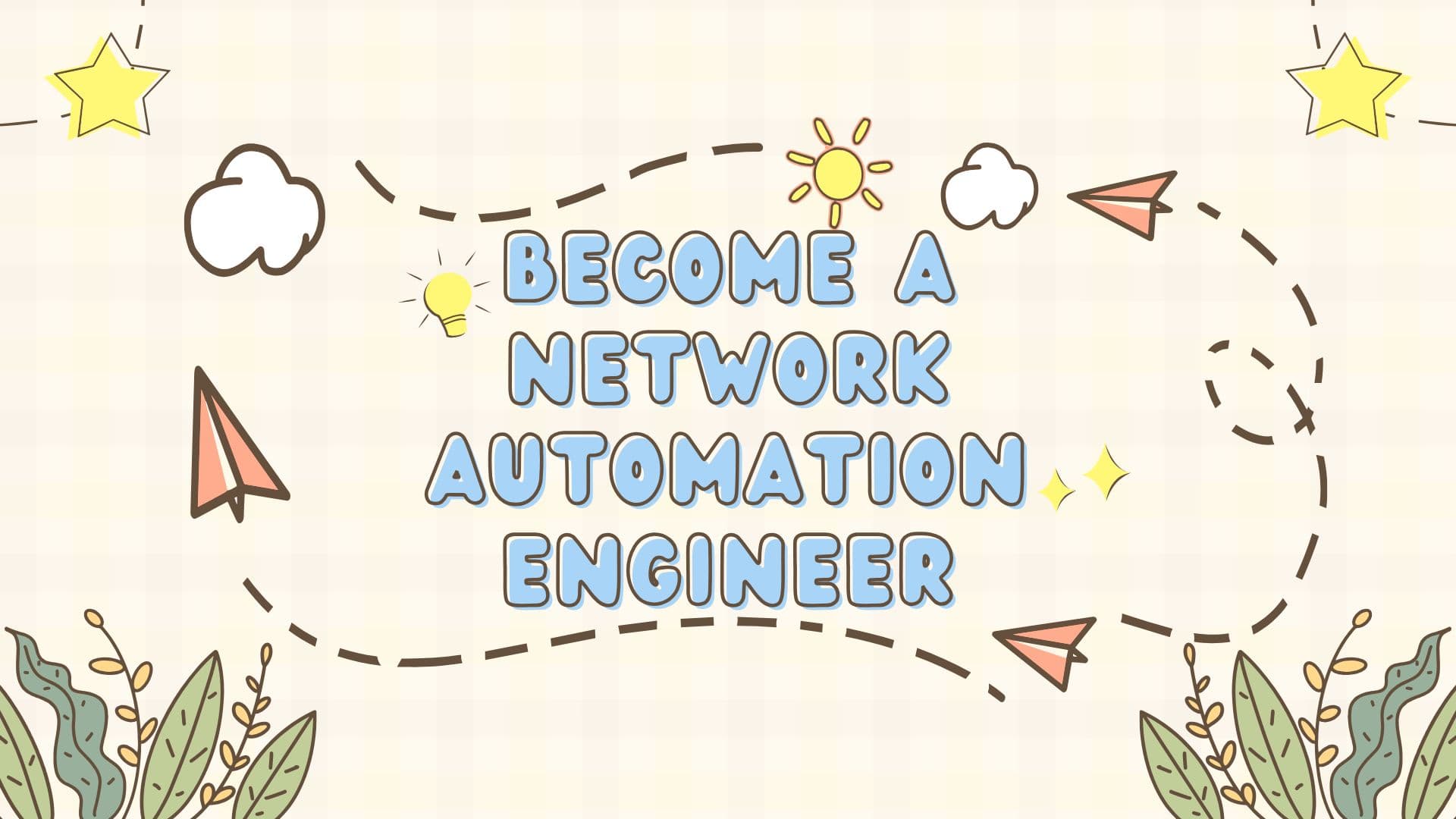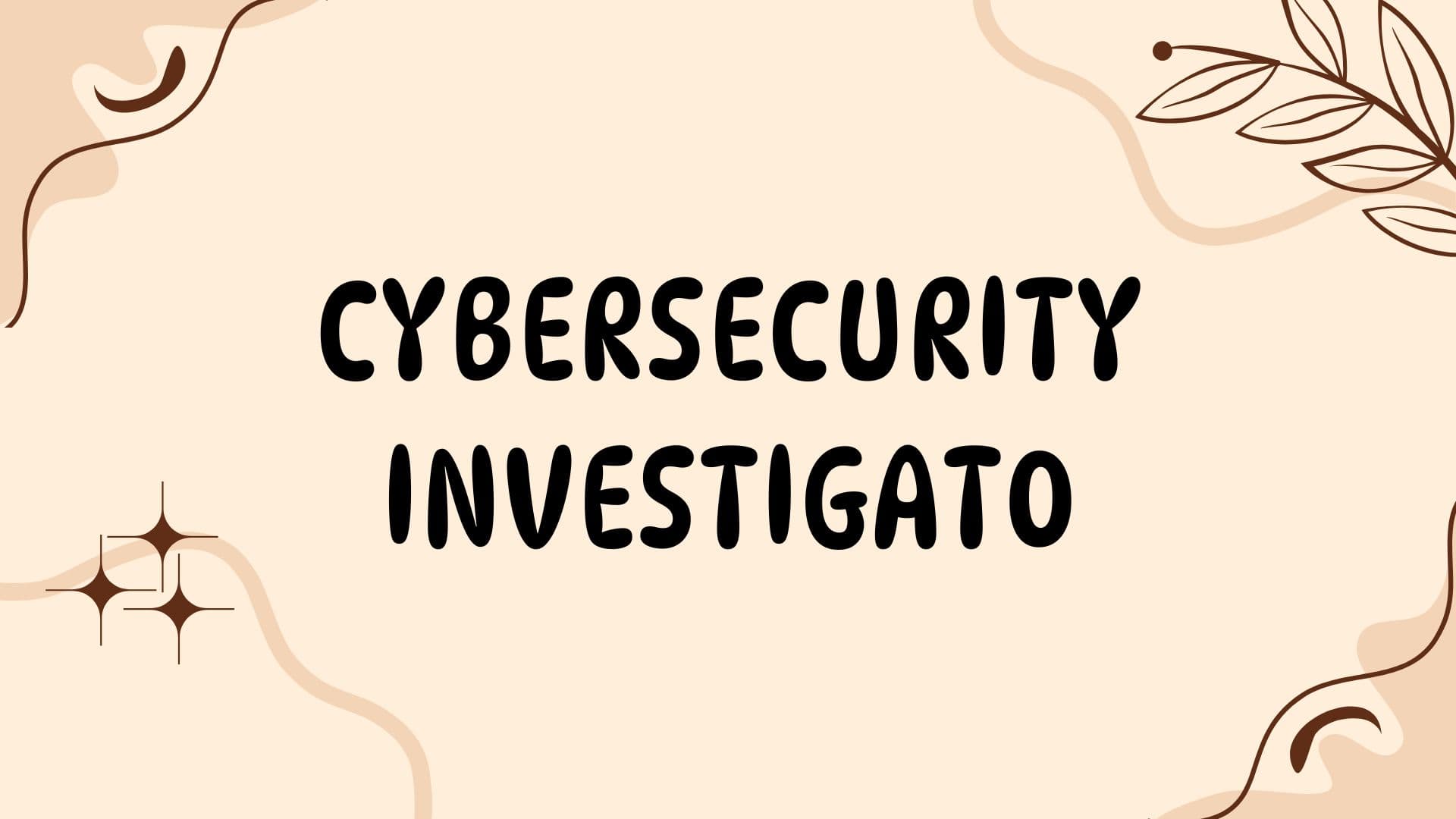TRUSTED BY THE SMARTEST TEAMS IN THE WORLD FOR CERTIFIED CANDIDATES
SPOTO Blogs
Useful learning materials to become certified IT personnel
-
- 753
- SPOTO
- 2025-05-12 11:21
-
- 1251
- SPOTO
- 2025-05-12 10:40
-
- 1123
- SPOTO
- 2025-05-09 10:00
-
- 1286
- SPOTO
- 2025-05-07 14:16
-
- 1142
- Emma
- 2025-05-07 11:42
-
- 1251
- SPOTO
- 2025-05-07 10:15
-
- 949
- SPOTO
- 2025-05-06 10:51
-
- 645
- SPOTO
- 2025-04-28 16:20
-
- 732
- SPOTO
- 2025-04-28 16:12
TRUSTED BY THE SMARTEST TEAMS IN THE WORLD FOR CERTIFIED CANDIDATES
SPOTO Blogs
Useful learning materials to become certified IT personnel
-
- 753
- SPOTO
- 2025-05-12 11:21
Table of Contents1. What is a Network Developer?2. What does a Network Developer do?3. Career Insights: Salary, Outlook & Related Roles4. What Are the Qualifications to Become a Network Developer?5. Summarize 1. What is a Network Developer? Network developers are responsible for building, developing and maintaining the data network of an enterprise or organization. They are network engineers who focus on creating and implementing software solutions for network systems. They are engaged in the IT business of an enterprise or organization. 2. What does a Network Developer do? Network developers need to have a variety of comprehensive skills to be competent in building and maintaining an efficient and secure computer network environment. First of all, they should have solid network architecture design capabilities and be able to develop, expand and manage various network systems including local area networks, wide area networks, and corporate intranets and extranets. At the same time, they need to have excellent problem troubleshooting and problem-solving capabilities to ensure that data can be transmitted quickly and stably between multiple data centers. In addition, network developers must master network modeling and performance analysis skills, evaluate network structures through modeling, and optimize existing systems to improve efficiency and reliability. In terms of security, they should be able to design and implement effective security strategies to protect networks and data from potential threats. Finally, continuous research and evaluation of the latest network hardware and software technologies and making feasible suggestions are also important capabilities that are indispensable to this position. 3. Career Insights: Salary, Outlook & Related Roles (1) Network Developer Salary According to data from the ZipRecruiter website on May 4, 2026, the average hourly wage for web developers in the United States is $48.73, with hourly wages ranging from as high as $62.50 to as low as $31.73, but most web developers in the United States currently earn between $36.78 and $62.50. The average salary range for web developers varies widely, which means there may be many opportunities for advancement and pay raises depending on skill level, location, and years of experience. Among them, the web developer job market in and around Los Angeles, California is very active. (2) Job Outlook of Network Developer The U.S. Bureau of Labor Statistics (BLS) projects that the field will grow by 13% between 2023 and 2033, with an average of 12,300 job openings per year. The related occupation, Network and Computer Systems Administrators, is projected to grow by 2–5% between 2022 and 2032, with thousands of job openings expected each year, both as the industry expands and as current employees leave. The job outlook for network developers, especially computer network architects, is positive, with projected growth rates much faster than the average for all occupations. (3) Similar Occupations Network Engineer Network Administrator Network Analyst Network Security Engineer Systems Administrator Technical Support Specialist Information Technology Specialist IT Manager 4. What Are the Qualifications to Become a Network Developer? (1) Obtain a Bachelor's Degree When companies or organizations recruit network developers, they often require job seekers to have a bachelor's degree in computer science, computer engineering, programming, information systems, or a related field. In addition, having a computer science or master of business administration (MBA) degree is more likely to be favored by employers in job applications. (2) Develop professional skills To be qualified for this position, network developers must have both professional technical capabilities and excellent soft skills. First, in terms of technology, they should master common programming languages ​​such as C, C++, Python, Java or Go, and be familiar with network technology principles such as TCP/IP, routing, switching, firewalls, VPNs, and software-defined networks (SDN). Secondly, they must be proficient in network tools such as Wireshark, Nmap, Scapy, Ansible, and have experience in operating in different system environments such as Linux, Windows, and macOS. Finally, in terms of soft skills, network developers should have innovative thinking and independent problem-solving skills, and be able to develop and optimize network solutions according to business needs. At the same time, good communication skills and teamwork awareness are also important guarantees for the successful promotion of cross-departmental collaboration projects. (3) Earn Industry Certifications When applying for infrastructure engineer positions, it is helpful to obtain certain certifications as they can help you develop the key skills and knowledge required for the position and make your resume more noticeable to employers.Some employers prefer to hire candidates with experience in sales or a related technical field, such as engineering or IT strategy. DevNet Professional certification demonstrates your ability to develop and maintain applications on Cisco platforms. With Cisco DevNet Professional certification, you will gain a unique combination of software and infrastructure skills to help you become a network developer. 5. Summarize Network developers are responsible for building, developing and maintaining the data network of an enterprise or organization. They are network engineers who focus on creating and implementing software solutions for network systems. They are engaged in the IT business of an enterprise or organization.Network developers are usually required to have a bachelor's degree or above in computer science or related majors, and have a deep understanding of network basics.At the same time, it is also extremely important to have corresponding professional skills certification and practical experience. -
- 1251
- SPOTO
- 2025-05-12 10:40
Table of Contents1. What is a Cloud Network Engineer?2. What does a Cloud Network Engineer do?3. Career Insights: Salary, Outlook & Related Roles4. What Are the Qualifications to Become a Cloud Network Engineer?5. Summarize 1. What is a Cloud Network Engineer? Cloud network engineers are professional IT personnel who are responsible for designing, implementing and managing networks in the cloud. They are committed to migrating system functions and network architecture to private, public or hybrid cloud environments. This process gives organizations greater autonomy and adaptability, helping to improve overall efficiency and work effectiveness. 2. What does a Cloud Network Engineer do? A cloud network engineer is responsible for designing, implementing, and maintaining the network infrastructure of a cloud environment, such as local area networks (LANs), wide area networks (WANs), intranets, extranets, and other data communication networks. First, create and optimize the network architecture for maintaining cloud platforms such as AWS, Azure, or Google Cloud to ensure efficient and secure communication between systems and applications, and ensure high availability, performance, and scalability. Second, implement security measures such as firewalls, VPNs, and encryption to protect cloud networks and data from cyber threats, and continuously monitor the performance of cloud networks, troubleshoot connectivity issues, and resolve potential network failures. Third, use automation tools and scripting languages ​​(such as Python, PowerShell) to automate repetitive tasks and optimize network operations. Collaboration is also one of their responsibilities, working with cloud architects and developers to integrate various cloud services such as databases, storage, and computing resources into the network, and working with DevOps, IT, and security teams to align network operations with the broader cloud infrastructure and business goals. Finally, ensure that the network complies with industry standards, regulations, and best practices, and maintain documentation of network architecture, processes, and changes, analyze network performance, and optimize configuration to reduce costs without affecting performance. 3. Career Insights: Salary, Outlook & Related Roles (1) Cloud Network Engineer Salary This article collates the information of major career salary websites for career reference. According to data on the glassdoor website, the expected total salary of cloud network engineers is $143,760 per year, and the average salary is $119,540 per year. The expected additional salary is $24,221 per year. Additional salary may include cash bonuses, commissions, tips, and profit sharing. According to data from the ZipRecruiter website on May 4, 2026, the average annual salary of cloud network engineers in the United States is $109,040. It is about $52.42 per hour. This is equivalent to $2,096 per week or $9,086 per month. The annual salary of cloud network engineers in the United States can reach as high as $158,000 and as low as $31,000, but most cloud network engineers currently have salaries between $89,000 and $133,500, and the highest earners have annual salaries as high as $143,000 across the United States. The average pay range for a Cloud Network Engineer varies greatly (as much as $44,500), which suggests there may be many opportunities for advancement and increased pay based on skill level, location and years of experience. (2) Job Outlook of Cloud Network Engineer As cloud computing technology continues to develop, enterprises are increasingly in need of professionals with cloud network skills. According to Flexera, by 2026, 94% of enterprises have adopted cloud computing in their operations. In addition, the global cloud computing market is expected to reach US$912.77 billion in 2026 and grow to approximately US$5.15 trillion in 2034, with an average annual growth rate of 21.2%. This trend provides broad career prospects for cloud network engineers. As enterprises migrate to cloud platforms, they need professionals to design, implement, protect and manage complex network architectures across multiple public clouds and hybrid cloud environments. According to a survey of 40 US chief information officers by Jefferies, it is expected that by 2026, 70% of enterprise workloads will be migrated to the cloud, up from the current 45%. In addition, the rapid development of artificial intelligence (AI) and the Internet of Things (IoT) has also driven the demand for cloud network engineers. The cloud AI service market is expected to reach $97.9 billion by 2026, with an average annual growth rate of 25.7%. At the same time, the amount of data generated by IoT devices continues to increase, further increasing the demand for cloud infrastructure and network management. In summary, with the widespread application of cloud computing, AI and IoT technologies, cloud network engineers will continue to play a key role in the digital transformation of enterprises in the next few years. (3) Similar Occupations Network Engineer Cloud Engineer Systems Administrator DevOps Engineer Solutions Engineer Infrastructure Architect Infrastructure Engineer Solutions Engineer Solutions Architect DevOps Architect Software Engineering Manager Site Reliability Engineer System Architect 4. What Are the Qualifications to Become a Cloud Network Engineer? (1) Obtain a Bachelor's Degree This career requires job seekers to have a bachelor's degree in computer science, information technology, or a related field. (2) Develop professional skills After analyzing 120,916 job openings related to cloud network engineers, it was found that network engineering is the most popular professional ability among employers, with about 34% of positions requiring this skill. In addition, network routing, automation technology, computer science foundation, firewall configuration, and switch management are also popular. In terms of general skills, troubleshooting ability is the skill that appears most frequently in recruitment information, followed by communication and coordination, system operation and maintenance, project management, problem solving, and planning ability. (3) Earn Industry Certifications When applying for infrastructure engineer positions, it is helpful to obtain certain certifications as they can help you develop the key skills and knowledge required for the position and make your resume more noticeable to employers.Some employers prefer to hire candidates with experience in sales or a related technical field, such as engineering or IT strategy. DevNet Professional certification demonstrates your ability to develop and maintain applications on Cisco platforms. With Cisco DevNet Professional certification, you will gain a unique combination of software and infrastructure skills to help you become a cloud network engineer. 5. Summarize Cloud network engineers are professional IT personnel who are responsible for designing, implementing and managing networks in the cloud. They are committed to migrating system functions and network architecture to private, public or hybrid cloud environments. This career requires job seekers to have a bachelor's degree in computer science, information technology, or a related field,and have a deep understanding of the basic knowledge of the network. At the same time, it is also extremely important to have the corresponding professional skills certification and practical experience. -
- 1123
- SPOTO
- 2025-05-09 10:00
Table of Contents1. What is a Firewall Administrator?2. What does a Firewall Administrator do?3. Career Insights: Salary, Outlook & Related Roles4. What Are the Qualifications to Become a Firewall Administrator?5. Summarize Firewall administrators are people who are responsible for configuring, maintaining, and monitoring firewall devices. This article will introduce you to what a Firewall Administrator is, the career information and prospects of a PFirewall Administrator, and the necessary conditions to become a Firewall Administrator. 1. What is a Firewall Administrator? Firewall administrators are people who are responsible for configuring, maintaining, and monitoring firewall devices. Their responsibilities are to ensure the security and stability of the company's internal network. They prevent unauthorized access and ensure the smooth transmission of legitimate data by setting access control policies, limiting illegal traffic, and continuously monitoring network activities. 2. What does a Firewall Administrator do? Firewall administrators are often responsible for designing, deploying, and maintaining the network and its security infrastructure in an organization, applying industry best practices and current technologies, supporting their application in RDT and E environments, and participating in the assessment of security risks brought about by proposed IPS/IDS modifications. In daily work, you need to manage Cisco Firepower IPS/IDS and related network security systems according to established policies, analyze network security needs, and promote perimeter security improvements. Administrators also need to design, configure, and troubleshoot various IPS/IDS technologies based on network industry standards. In addition, as a professional technical consultant, the fire protection administrator collaborates with customers, other infrastructure teams, and business departments to ensure that problems are resolved in a timely manner, and is responsible for writing and updating relevant documentation for the security infrastructure. At the same time, you need to participate in the development and maintenance of relevant standard operating procedures (SOPs), cooperate with the IT team to promote various projects, and provide professional advice on monthly progress and status reports. Daily responsibilities also include monitoring network performance and making necessary optimization adjustments, software installation, patch management, file system maintenance, and performance monitoring of IPS/IDS systems. 3. Career Insights: Salary, Outlook & Related Roles (1) Firewall Administrator Salary According to ZipRecruiter, the average hourly wage for a Firewall Administrator in the United States is $45.53 as of May 1, 2026. Hourly wages can be as high as $77.40 and as low as $24.28, but most Firewall Administrator salaries currently range from $35.10 to $49.76 across the United States. The average salary range for a Firewall Administrator varies greatly, which means there may be many opportunities for advancement and increased pay based on skill level, location, and years of experience. (2) Job Outlook of Firewall Administrator In today's highly interconnected era, technology has brought many security challenges while making life more convenient, one of which is cyber attacks and threats. In this context, firewall administrators, as important guardians of the network security line of defense, shoulder the key responsibilities of protecting sensitive information and strengthening organizational defense. They use effective strategies and technical means to reduce network risks and ensure data flow and system security. According to the U.S. Bureau of Labor Statistics (BLS), network and information security-related positions are expected to grow by 35% from 2021 to 2031. This trend shows that there is a broad prospect for career development in this field and demand continues to rise. (3) Similar Occupations Security Engineer Network Engineer Cybersecurity Manager/Administrator Network Security Consultant Security Consultant Information Security Analyst Firewall-specific roles Microsoft Network Administrator 4. What Are the Qualifications to Become a Firewall Administrator? (1) Obtain a Bachelor's Degree Many firewall administrators have degrees in computer science, information technology, or related fields. Therefore, if you want to become a firewall administrator, you should first obtain a degree certificate in a related field. Of course, improving your education and professional skills while working will also be helpful for your career. (2) Develop professional skills Firewall administrators need to be proficient in network device configuration and management of firewall devices, master TCP/IP protocols, routing switching and network security architecture, and be able to use tools for data analysis and troubleshooting. At the same time, they need to maintain and update firewall systems to ensure compliance requirements, so they should have scripting skills to achieve operation and maintenance automation. With the popularity of cloud computing, administrators also need to master the security configuration and policies of cloud platforms. Good communication and collaboration skills are necessary, especially when working with a team, explaining security issues to non-technical personnel, and emergency response. These necessary professional skills require job seekers to accumulate in school education and internships. (3) Earn Industry Certifications Certification is often a strong proof of personal skills, and obtaining industry-recognized certification can make you more competitive in the workplace. When applying for infrastructure engineer positions, it is helpful to obtain certain certifications as they can help you develop the key skills and knowledge required for the position and make your resume more noticeable to employers. CCNP Service Provider certification validates your expertise in implementing core service provider network technologies, including architecture, services, networking, automation, and more. Earning the Cisco Certified Network Professional (CCNP) Service Provider certification can help you get a leg up in your job search as a firewall administrator. 5. Summarize Firewall administrators are people who are responsible for configuring, maintaining, and monitoring firewall devices. Firewall administrators are usually required to have a bachelor's degree or above in computer science or related majors, and have a deep understanding of network basics and information security principles. At the same time, it is also important to have practical experience in operating firewalls and be familiar with mainstream operating systems and their management tools. -
- 1286
- SPOTO
- 2025-05-07 14:16
Table of Contents1. What is an Ip Network Engineer?2. What does an Ip Network Engineer do?3. Career Insights: Salary, Outlook & Related Roles4. What Are the Qualifications to Become an Ip Network Engineer? 1. What is an Ip Network Engineer? IP network engineers specialize in the planning, construction, and maintenance of IP Ethernet systems within an enterprise or organization. Their duties include configuring, diagnosing and providing technical support for key network devices like routers, switches and firewalls as well as developing management tools so operations teams can receive timely technical assistance whenever required. 2. What does an Ip Network Engineer do? The IP Network Engineer is responsible for the following work: Conduct research and analysis to support the evaluation and recommendation of equipment, services, vendors and emerging technologies to ensure that they can effectively meet the business needs of the enterprise. Regularly update and maintain documents related to the enterprise IT environment to ensure the accuracy and timeliness of information. Respond to various system and network failures in a timely manner, and deeply participate in the root cause analysis (RCA) of network and application problems. Continuously manage and maintain the LTM and ASM module configurations of BIG F5 devices, and prepare for future GTM module deployments. Manage the system log server to record network events and changes to provide a basis for problem troubleshooting and root cause analysis. Continuously maintain and manage Cisco ASA firewalls. Work closely with project managers and business product owners to clarify the scope of work and key parameters of new projects. At the system level, ensure the completeness and accuracy of all relevant documents (including conceptual documents, logical documents and physical documents). Participate in the planning and design of network architecture, and collaborate with the development team to jointly promote the development and implementation of new technology solutions. 3. Career Insights: Salary, Outlook & Related Roles (1) Ip Network Engineer Salary According to data provided by Payscale, the average annual salary for network engineers is approximately $77,226. During the recruitment process, candidates with skills related to Cisco UCCE/IPCC telephone systems are particularly favored by employers. At the same time, the Glassdoor website shows that the average annual salary for this position in the United States is $111,556. Indeed's salary statistics show that the income range of IP network engineers is relatively wide, ranging from an annual salary of approximately $52,495 for IT support positions to an annual salary of approximately $107,254 for senior network engineers. Overall, this field has good prospects for job growth in the next few years, and practitioners will still be highly competitive in the workplace. (2) Job Outlook of Ip Network Engineer Employment of network and computer systems administrators is projected to decline 3% from 2023 to 2033, according to the U.S. Bureau of Labor Statistics. Despite the job losses, an average of about 16,400 network and computer systems administrator job openings are expected to occur each year over the next decade. All of these openings are expected to be filled by workers who switch careers or exit the workforce (e.g., due to retirement). (3) Similar Occupations Network Analyst Network Administrator or Specialist System Administrator Infrastructure Engineer Network Architect Network Technician Cybersecurity Engineer Technical Support Specialist IT Manager 4. What Are the Qualifications to Become an Ip Network Engineer? (1) Obtain a Bachelor's Degree Most positions require a bachelor's degree or higher. Applicants should have a degree in a related field, such as system administration, network security, and hardware. Electrical engineering and network engineering are popular choices, while computer science and information technology offer similar study opportunities. (2) Develop professional skills IP network engineers are technical professionals specialized in designing, creating and optimizing an organization's internal IP network. To do so successfully they must master protocols like TCP/IP, BGP and OSPF; be able to configure routers, firewalls and switches; diagnose network failures quickly; use monitoring tools like Python or Shell scripting; understand cloud network architecture as well as utilize automated scripting languages like Python and Shell; as well as be familiar with automated scripts such as Python or Shell as part of automated network monitoring solutions and comprehend cloud network architecture as part of modern IP network engineer's skillset - not only technical pillars but also instrumental forces ensuring secure operation of enterprise data communications. (3) Earn Industry Certifications When applying for infrastructure engineer positions, certifications can help develop key skills and knowledge necessary for success in the role. Achieve one in the IT field also shows employers you are qualified. Earning your Cisco Certified Network Professional (CCNP) Service Provider certification demonstrates your expertise in implementing core service provider network technologies such as architecture, services, networking and automation. Succeeding can open doors to career advancement as an IP Network Engineer. -
- 1142
- Emma
- 2025-05-07 11:42
Table of Contents1. What is a Network Security Engineer?2. What does a Network Security Engineer do?3. Why become a Network Security engineer?4. How to Become a Network Security Engineer? In the era of big data, cybersecurity engineers have become one of the most sought-after professions globally. 1. What is a Network Security Engineer? Network security engineers are professionals who are responsible for protecting enterprises' networks, systems, and data from cyberattacks, data breaches, and malicious activities. Through technical means and management strategies, they ensure the confidentiality, integrity, and availability of information systems. 2. What does a Network Security Engineer do? Network security engineers maintain and optimize organizational security infrastructures. Their responsibilities encompass deploying and validating new protective measures, developing system enhancement plans, troubleshooting security anomalies, and responding to cyber incidents. Plan and Maintain Specialists in this role administer the primary security mechanisms that protect enterprise assets from compromise. Beyond implementing protective measures, they design holistic security governance models and lead initiatives to maintain operational continuity during and after crisis situations. Monitor and Test The task of network security engineers involves evaluating the performance of security controls and compliance policies. They safeguard against any alterations that could compromise network security integrity. Moreover, they examine hardware and software for possible vulnerabilities and keep a close watch on backup and disaster recovery systems. Incident Response Network security engineers detect security incidents and take appropriate actions. They determine effective security strategies to enhance the incident response process and resolve emerging security problems. By implementing standardized defense protocols, they strengthen infrastructure resilience to ensure business continuity during cyberattacks or catastrophic events. 3. Why become a Network Security engineer? Love for Challenges and Continuous Learning The field of cybersecurity is full of dynamic changes, and new threats and attack techniques emerge every day. If you enjoy solving complex problems, analyzing attack patterns, and designing defense strategies, this profession allows you to constantly push your own limits. High Salaries and Broad Prospects According to reports, the global shortage of cybersecurity talent reaches 4 million. The supply-demand imbalance has led to a significant increase in salaries. Senior cybersecurity experts can earn up to $500,000 or even more. There are diverse career paths in this field. One can develop towards positions such as security architect or CISO (Chief Information Security Officer) or focus on emerging areas like AI security. Crucial to Corporate Security Cybersecurity engineers have a significant impact on any company. They are able to continuously identify and eliminate various cyber threats, ensuring that organizations maintain a healthy operational state in a digital environment fraught with risks. 4. How to Become a Network Security Engineer? Build a Strong Foundation Laying a solid groundwork is the first step towards becoming a network security engineer. A degree in Computer Science, Cybersecurity, or IT is helpful but not mandatory. Bootcamps and online courses (SPOTO) are good alternatives. Enroll in relevant online learning programs that cover topics like data structures, algorithms, and programming languages (Python, C++). These skills are essential as they form the basis for understanding how networks and systems function, which in turn is crucial for identifying and addressing security vulnerabilities. Study the basics of cybersecurity, including concepts like confidentiality, integrity, and availability, as well as common types of cyber threats and attacks. Earn Key Certifications Certifications play a vital role in validating your skills and knowledge in the field of network security. CompTIA Security+ is an excellent entry-level certification that covers a broad range of security concepts, including threats and vulnerabilities, as well as security technologies and policies. As you progress, the Cisco Certified Network Professional Security can be highly beneficial. Certifications not only enhance your credibility in the job market but also provide in-depth knowledge and skills that are directly applicable to real-world network security scenarios. Land Your First Job After building your skills and earning relevant certifications, it's time to start looking for your first job as a network security engineer. Begin by creating a strong resume that highlights your education, certifications, skills, and any relevant projects or internships. Look for entry-level positions such as junior network security analyst or security associate at companies, government agencies, or managed security service providers. Leverage online job boards, professional networking sites like LinkedIn, and career fairs to find job opportunities. Participate in Learning Forums or Communities Engaging in learning forums and communities is an ongoing process that can greatly enhance your growth as a network security engineer. Specialized forums such as SecurityFocus offer a wealth of knowledge and opportunities for discussion, where you can interact with experienced professionals, share ideas, ask questions, and learn about the latest industry news, emerging threats, and innovative solutions. Participating in online communities also allows you to stay updated on new tools, techniques, and best practices. Moreover, consider joining local cybersecurity meetups or user groups, where you can network with professionals in your area, attend workshops and talks, and collaborate on projects. This continuous learning and networking not only help you stay ahead in the field but also open up new career opportunities and professional relationships. If you aspire to become a senior network security engineer, don't hesitate. Enroll in the SPOTO training course immediately and start learning with us. -
- 1251
- SPOTO
- 2025-05-07 10:15
Table of Contents1. What is a Network Operations Center Engineer?2. What does a Network Operations Center Engineer do?3. Career Insights: Salary, Outlook & Related Roles4. What Are the Qualifications to Become a Network Operations Center Engineer? 1. What is a Network Operations Center Engineer? The Network Operations Center is a centralized location for networks that is maintained and monitored 24/7 by an IT team. Network Operations Engineers are experts in troubleshooting large computer networks,servers who work in network operations centers and are responsible for troubleshooting, network monitoring, and problem solving. 2. What does a Network Operations Center Engineer do? As a Network Operations Center(NOC) Engineer, you need to provide necessary technical support by continuously checking and maintaining servers. Your main responsibilities are as follows: First, use a variety of network monitoring tools to detect whether the performance of the computer network system is stable, find existing and potential network failures and take solutions. Secondly, in the process of troubleshooting and solving problems in the network system, it is necessary to coordinate and cooperate with colleagues, customers and third-party technology providers to jointly ensure the resolution of network problems. Furthermore, it is necessary to monitor and control all problems that arise, establish and save a database of historical problems, carefully track and record all defects and solutions in detail, so as to solve problems faster and continue software development Finally, network operations engineers need to use their in-depth understanding of information technology, including understanding of malware and security issues, to manage backbone networks and their interconnectivity. 3. Career Insights: Salary, Outlook & Related Roles (1) Network Operations Center Engineer Salary According to data from some reliable online recruitment websites, the annual salary of network operations engineers ranges from $67,043 to $115,020. According to data from the payscale website on March 25, 2026, the average base salary for network operations center (NOC) engineers is $69,417, with bonuses ranging from $1,000 to $10,000, and profit sharing ranging from $47,000 to $17,000. (2) Job Outlook of Network Operations Center Engineer Job demand for network operations center engineers is expected to grow 4% from 2022 to 2032, slightly faster than the average for all jobs in the U.S., with the potential for 10,200 new jobs added each year during that period, according to the latest data from the U.S. Bureau of Labor Statistics (BLS). (3) Similar Occupations Network Support Engineer Network Engineer / Network Administrator Systems Administrator / IT Operations Engineer Incident Response Analyst / IT Helpdesk Tier 2/3 Site Reliability Engineer (SRE) Telecommunication Engineer Cloud Operations Engineer / Cloud NOC Engineer 4. What Are the Qualifications to Become a Network Operations Center Engineer? (1) Obtain a Bachelor's Degree The majority of positions require candidates to have a Bachelor's Degree or higher. A reputable university will give you an edge in the job market. Network operations engineer positions typically require a bachelor's degree in a field such as network operations, computer and information technology, or engineering. These degrees provide the necessary foundation of expertise for the position. (2) Develop professional skills As a network operations engineer, first of all, you need to have a solid network foundation and rich operation and maintenance practical experience, and be able to efficiently monitor, maintain and optimize the network environment of enterprises or service providers. Secondly, you must be familiar with core network technologies such as TCP/IP protocol stack, VLAN, STP, BGP, OSPF, A+、CCNA、VMWare,and be able to independently complete the configuration and troubleshooting of switches, routers, firewalls and other equipment. Furthermore, you must be proficient in using network monitoring tools (such as Zabbix, Nagios, SolarWinds) to achieve real-time monitoring and alarm processing of network operation status. Finally, you must have certain automation capabilities and be able to use Python and Shell scripts to complete operation and maintenance task automation and log analysis. Familiar with common network security mechanisms, such as ACL, VPN, and firewall policy configuration, and have strong emergency response and problem location capabilities. (3) Earn Industry Certifications When applying for infrastructure engineer positions, it is helpful to obtain certain certifications as they can help you develop the key skills and knowledge required for the position and make your resume more noticeable to employers.Earning a recognized certification in the IT field helps employers recognize you as a qualified candidate.CCNP Service Provider validate your expertise in implementing core service provider network technologies, including architecture, services, networking, automation, and more. Earning the Cisco Certified Network Professional (CCNP) Service Provider certification can help you advance your career path as a network operations engineer. -
- 949
- SPOTO
- 2025-05-06 10:51
Table of Contents1. What is an IT Infrastructure Engineer?2. IT Infrastructure engineer responsibilities3. Essential Skills for IT Infrastructure Engineer3. Career Insights: Salary, Outlook & Related Roles4. How to Become an IT Infrastructure Engineer? 1. What is an IT Infrastructure Engineer? IT Infrastructure Engineers are involved in the design, construction, coordination and maintenance of an enterprise's IT architecture to ensure the secure operation of the company's internal network, collect data, develop and launch digital products, support its online stores, and achieve other business goals. 2. IT Infrastructure engineer responsibilities IT Infrastructure Engineers are responsible for a variety of tasks, including but not limited to: designing, maintaining and deploying network and servers infrastructure; monitoring and troubleshooting performance issues, configuring server hardware and software; implementing security measures, such as firewalls and authentication and encryption. They also prepare software and hardware documentation and monitor system and network performance indicators. 3. Essential Skills for IT Infrastructure Engineer IT Infrastructure Engineers need to have the following skills: Network and server management experience, familiarity with TCP/IP, DNS, DHCP and other network protocols, proficiency in the configuration of routers and switches from Cisco, Huawei and other manufacturers, firewall configuration and troubleshooting, proficiency in the use of network performance monitoring tools such as Nagios, Zabbix, SolarWinds, in-depth understanding of server hardware and software, excellent problem-solving and organizational skills, proficiency in the use of virtualization technologies such as VMware ESXi/vSphere, Hyper-V, KVM, etc. 3. Career Insights: Salary, Outlook & Related Roles (1) IT Infrastructure Engineer Salary ZipRecruiter data shows that as of April 28, 2026 the average annual salary in Los Angeles for infrastructure engineers is $136 915, or $65.82 an hour. This is equal to $2,632 a week or $11,409 a month. The highest salary among them is $196.107, and the lowest is $50,000104. However, most infrastructure engineers have salaries that range between $115.800 (25th centile) and $161.900 (75th centile), with the highest earners in Los Angeles (90th) earning $175.634. (2) Job Outlook of IT Infrastructure Engineer According to the U.S. Bureau of Labor Statistics, jobs in IT Infrastructure Engineer will increase by 4% between 2022 and 2032. This is the same growth rate as the average of all occupations. It means that those who are interested in a career with infrastructure engineering have good prospects. (3) Similar Occupations Network Engineer Cloud Engineer DevOps Engineer Solutions Architect Systems Engineer IT Project Manager IT Manager Technical Manager Security Engineer 4. How to Become an IT Infrastructure Engineer? (1) Obtain a Bachelor's Degree Most positions require applicants to hold a bachelor's degree or higher. Studying at a reputable institution will give you a competitive edge. Applicants should hold a closely related degree, such as electrical engineering, software engineering, computer science and information technology (IT) or other related fields. (2) Develop professional skills It is important to have the necessary skills to be a successful infrastructure engineer. This will allow you to demonstrate your abilities to potential employers and improve your chances of advancement. Consider looking for internships to gain valuable experience while you study for your undergraduate degree. Consider internships with software and information technology companies. (3) Earn Industry Certifications When applying for infrastructure engineer positions, it is helpful to obtain certain certifications as they can help you develop the key skills and knowledge required for the position and make your resume more noticeable to employers.Earning a recognized certification in the IT field helps employers recognize you as a qualified candidate.CCNP Enterprise Certification demonstrates expertise in enterprise infrastructure and security. The Cisco Certified Network Professional Enterprise (CCNP) certification allows you to configure, manage, and troubleshoot networks for some of the largest companies in the world, boosting your career as an IT Infrastructure Engineer. -
- 645
- SPOTO
- 2025-04-28 16:20
Table of Contents1. What is a Network Automation Engineer?2. What does a Network Automation Engineer do?3. Career Insights: Salary, Outlook & Related Roles4. How to Become a Network Automation Engineer? 1. What is a Network Automation Engineer? Network automation refers to the use of automation tools and programming to automate network operations, security, and monitoring to improve efficiency and reliability. Network automation engineers are responsible for overseeing these automated processes. 2. What does a Network Automation Engineer do? Network automation typically requires designing and implementing automated processes for all network engineering stages, collaborating with various engineering teams and IT professionals, managing and configuring networks using automation technologies to improve team efficiency, and using automation tools and programming to deploy network infrastructure to solve company automation network problems. Network automation engineers need to use tools such as Ansible, Salt, BackBox, and Python programming to develop and implement automated processes. As a network automation engineer, you will be part of the network engineering team. You will help build, lead, and guide an efficient team of network engineers. You will be responsible for collecting business requirements, soliciting feedback from key stakeholders on business requirements, and translating business requirements into network tools to develop and build tools and solutions to meet your growing business needs. 3. Career Insights: Salary, Outlook & Related Roles (1) Network Automation Engineer Salary The average annual salary for a network automation engineer in the United States is $137,433, or $66.07 per hour. Entry-level positions start at $116,500 per year, while most experienced employees can make up to $176,395 per year. Expect additional compensation of $18,500 per year. Additional compensation may include cash bonuses, commissions, tips, and profit sharing. (2) Job Outlook of Network Automation Engineer Automation technology is becoming increasingly important to enterprises, and network engineering is one of the areas where automation is increasing. Some predict that automation will take on 30% to 50% of network tasks within a decade, which will significantly reduce the demand for senior engineers. In 2024, the global network automation market size was US$5.41 billion and is expected to grow by 23.15% to US$43.4 billion by 2034. (3) Similar Occupations Network Analyst / Specialist Network Administrator Network Operations Engineer Software Quality Assurance Engineer / Test Engineer Control System Engineer Software Engineer 4. How to Become a Network Automation Engineer? (1) Obtain relevant education The first prerequisite for becoming an automation engineer is to obtain a university degree certificate recognized by the enterprise. Among them, a bachelor's degree in computer science, computer engineering, electrical engineering or a related field is usually a stepping stone to this career. Senior automation engineers may require a master's degree in telecommunications, computer science and other fields. (2) Have a professional certification Employers often consider hiring Network Automation Engineer who have relevant certifications, so having relevant professional certifications can help kick-start an Network Automation Engineer's career because it demonstrates the investigator's professionalism and commitment to the field. CCNP Enterprise certification demonstrates your expertise in enterprise infrastructure, assurance, security, and more. With the Cisco Certified Network Professional (CCNP) Enterprise certification, you can configure, troubleshoot, and manage networks for the world's largest companies. (3) Gain practical experience Experience is critical in a technical career. As technology changes rapidly, employers want to know if you have the skills and experience to meet their requirements without having to invest too much money in training. It is recommended to start with an entry-level position in the field of network engineering. Internships and entry-level IT jobs are great ways to gain experience, learn to troubleshoot, and expand your knowledge of network technologies. -
- 732
- SPOTO
- 2025-04-28 16:12
Table of Contents1. What is a Cybersecurity Investigator?2. Essential Skills for Cybersecurity Investigator3. Career Insights: Salary, Outlook & Related Roles4. How to Become a Cybersecurity Investigator? 1. What is a Cybersecurity Investigator? A cyber investigator is a trained and skilled investigator or detective who collects evidence of cybercrime from computer systems to help arrest Internet, computer or cyber criminals. They have the skills to uncover illegal activities that exist within complex networks. Billions of dollars are lost every year to repairing systems that have been hit by cyberattacks. Some attacks have even paralyzed critical systems, disrupting or even shutting down hospitals, banks and emergency call centers across the country. Cybercrime investigators gather the necessary information to stop cybercriminals from carrying out their nefarious activities. 2. Essential Skills for Cybersecurity Investigator Proficiency in using forensic tools, analyzing data, and collecting/preserving evidence from various digital sources. Understanding of network architecture, protocols, and security measures. Proficiency in operating systems, familiarity with Windows, Linux, and other operating systems, including their security features and vulnerabilities. Expertise in programming, knowledge of programming languages ​​such as Python or C++ for scripting, automation, and reverse engineering. Ability to perform security analysis of malware, ability to identify, analyze, and reverse engineer malware to understand its behavior and origin. Proficiency in using SQL for database query and analysis. 3. Career Insights: Salary, Outlook & Related Roles (1) Cybersecurity Investigator Salary According to data from ZipRecruite, the average annual salary for a Cyber ​​Investigator in the United States is $128,882 as of April 20, 2026. If you need a simple salary calculator, that works out to be approximately $61.96 an hour. That works out to $2,478 per week or $10,740 per month. The majority of Cyber ​​Investigator salaries currently range from $113,000 (25th percentile) to $146,500 (75th percentile), with top earners (90th percentile) making up to $157,500 per year. The average salary range for a Cyber ​​Investigator varies greatly (as much as $33,500), which means there may be many opportunities for advancement and increased pay based on skill level, location, and years of experience. (2) Job Outlook of Cybersecurity Investigator The job outlook for cybersecurity investigators (or more broadly, information security analysts) is very positive, with projections showing strong growth in the coming years. The U.S. Bureau of Labor Statistics (BLS) predicts that employment of information security analysts will grow 33% from 2023 to 2033. This growth rate is much faster than the average for all occupations, which means that job opportunities will increase significantly. (3) Similar Occupations Information Security Analyst Security Engineer Penetration Tester Digital Forensics Analyst Cybersecurity Analyst Cyber Defense Analyst Computer forensics investigator Surveillance investigator Compliance investigator Policy enforcement investigator Financial crime investigator Fraud investigator Researcher 4. How to Become a Cybersecurity Investigator? (1) Obtain a bachelor's degree for your Cybersecurity Investigator The first step to becoming a Cybersecurity Investigator is usually to earn a bachelor's degree in criminal justice, cybersecurity or computer science, according to the Cybersecurity Guide document. The necessary education is a stepping stone to the profession. (2) Have a professional certification Employers often consider hiring investigators who have relevant certifications, so having relevant professional certifications can help kick-start an investigator's career because it demonstrates the investigator's professionalism and commitment to the field. Cisco's Cybersecurity Professional Certification demonstrates your expertise in cyberattack prevention, incident response, and cloud security. Get Cisco Cybersecurity Professional Certification to advance your career. (3) Gain internship experience Look for an investigator who has extensive experience handling large enterprise cyber incidents. Having experience in your specific industry can be a significant advantage. This ensures they understand the unique challenges and regulatory requirements your company faces.





